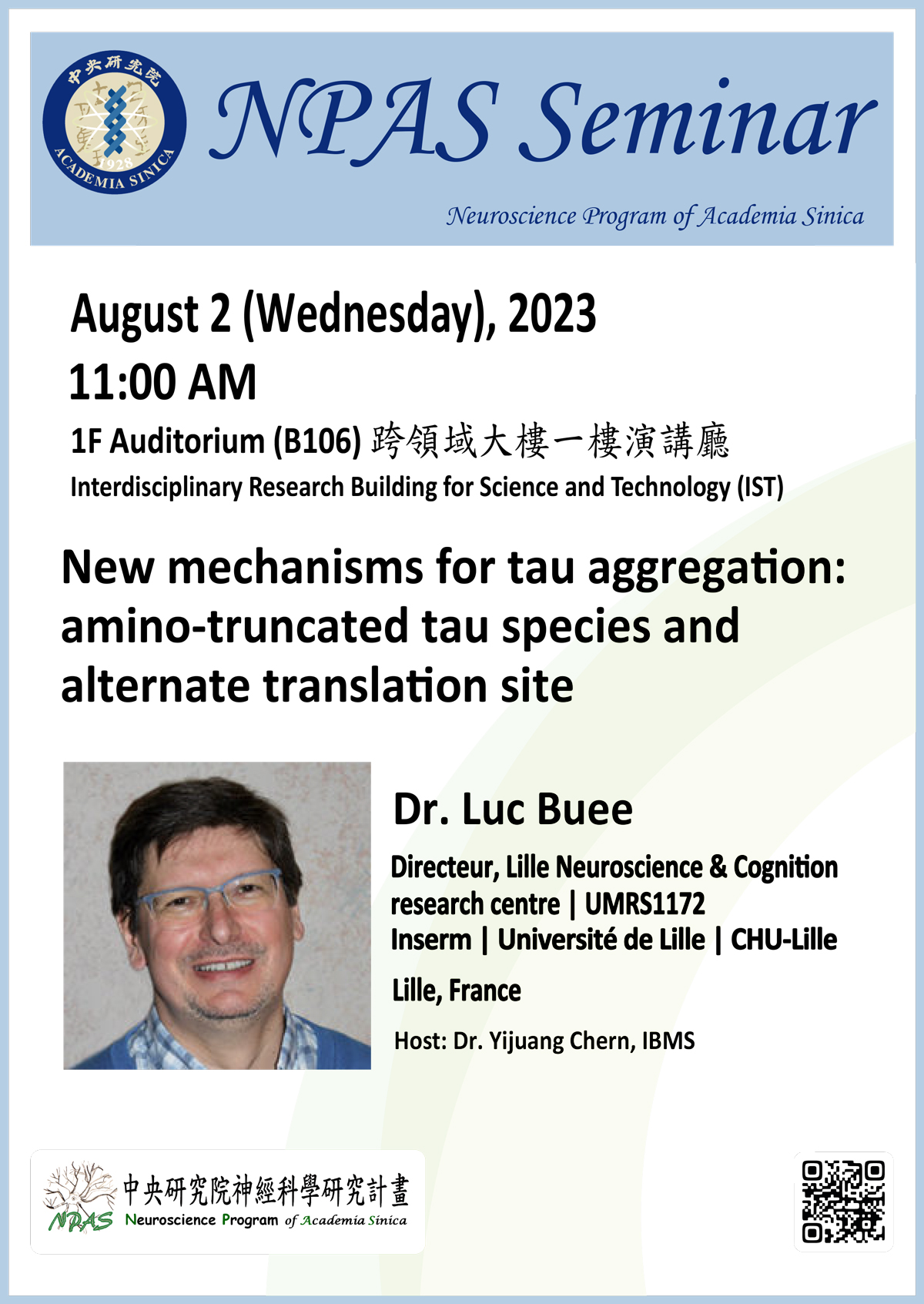- Lectures
- Institute of Biomedical Sciences
- Location
1F Auditorium (B106), IST
- Speaker Name
Dr. Luc Buee (Lille Neuroscience & Cognition research centre, France)
- State
Definitive
- Url
Protein translation is a complex multi-step process that requires numerous factors and relies on mRNAs sequence and structure. Dysfunctions in translation initiation often occur under stress conditions and are associated with human diseases. Here, we will focus on Alzheimer’s disease, a neurodegenerative disorder neuropathologically characterized by amyloid deposition and neurofibrillary degeneration. Indeed, in Alzheimer's disease, some neuronal stress such as inflammation and amyloid deposits could trigger translation deregulation. Among Tau species aggregated in Alzheimer's disease neurodegeneration, truncated Tau variants are probably involved in pathological process. We have recently uncovered new Tau protein variants that are only detected in Alzheimer's disease patients. Our preliminary data indicate that this new variant is found early in the course of neurodegeneration and could have an etiological role in Alzheimer's disease. Also, this Tau variant is not generated through not proteolysis, the mechanism that is so far described for generation of truncated variants of Tau proteins, but rather from an alternative translation initiation event.
In conclusion, our recent discoveries of a new Tau variant and of an alternative site for the Tau protein translation highlight the role of translation factors in Tau pathology.









 Home
Home

